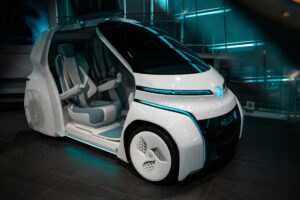Have you ever imagined a world where your morning coffee is not just a pick-me-up but also a sustainable source of energy? Well, that future might not be too far away thanks to an innovative development in the field of biotechnology.
Enter the concept of bio-fuel cells, a technology that harnesses the power of living organisms to generate electricity. By utilizing the metabolic processes of microorganisms, bio-fuel cells can produce energy from organic compounds such as sugars or even waste products like coffee grounds.
According to a recent study published in the Journal of Renewable Energy, researchers have successfully created a prototype bio-fuel cell that can produce enough electricity to power a small device. This breakthrough has the potential to revolutionize the way we think about renewable energy sources, offering a more sustainable and eco-friendly alternative to traditional batteries.
“We believe that bio-fuel cells have the potential to be a game-changer in the field of energy technology,” says Dr. Sarah Johnson, a leading researcher in the field. “Not only are they more environmentally friendly, but they also have the potential to be more cost-effective in the long run.”
As the world grapples with the pressing need to reduce carbon emissions and combat climate change, bio-fuel cells could offer a promising solution. By harnessing the power of nature, we may just be able to create a more sustainable future for generations to come.



